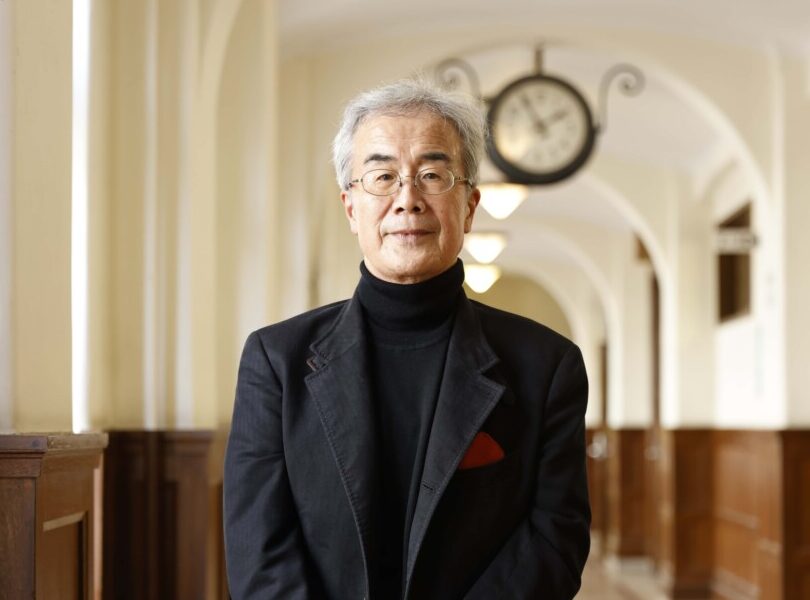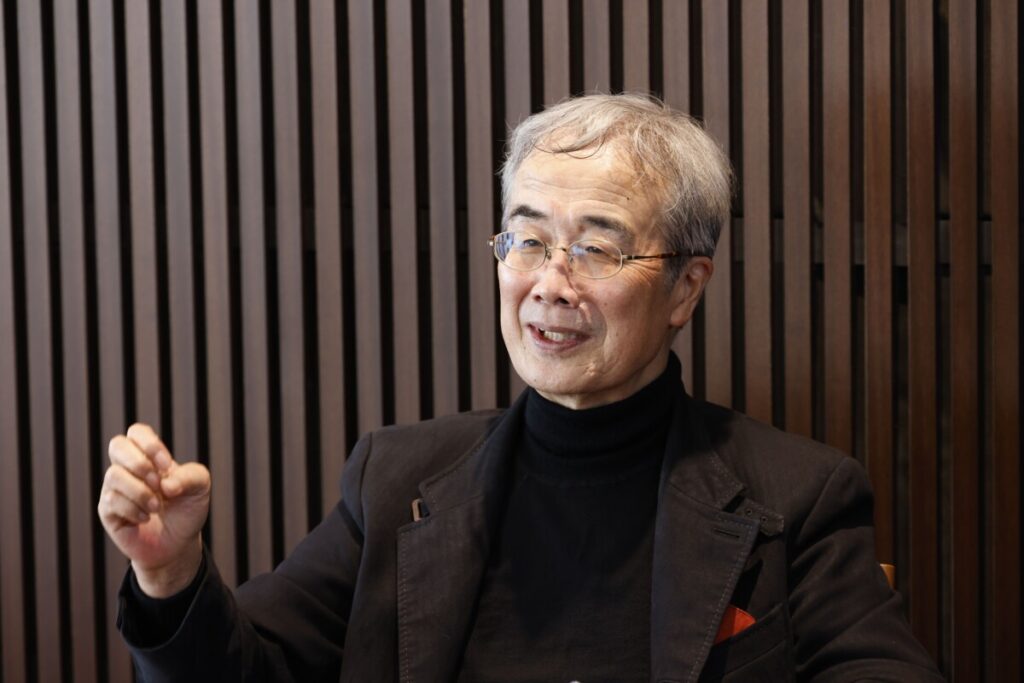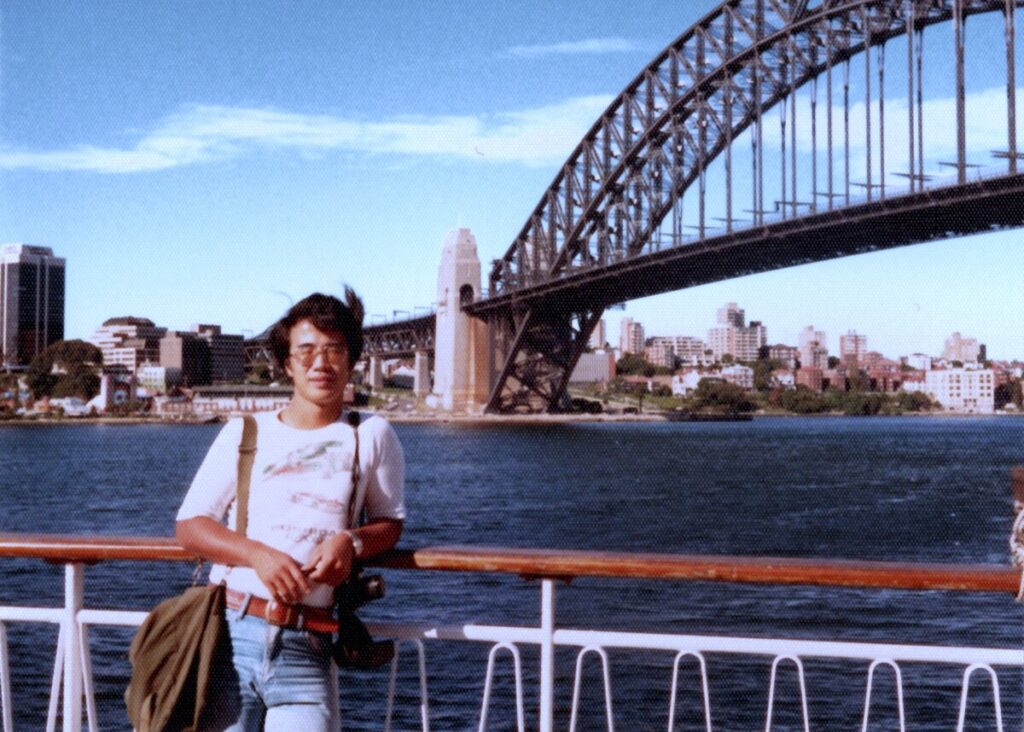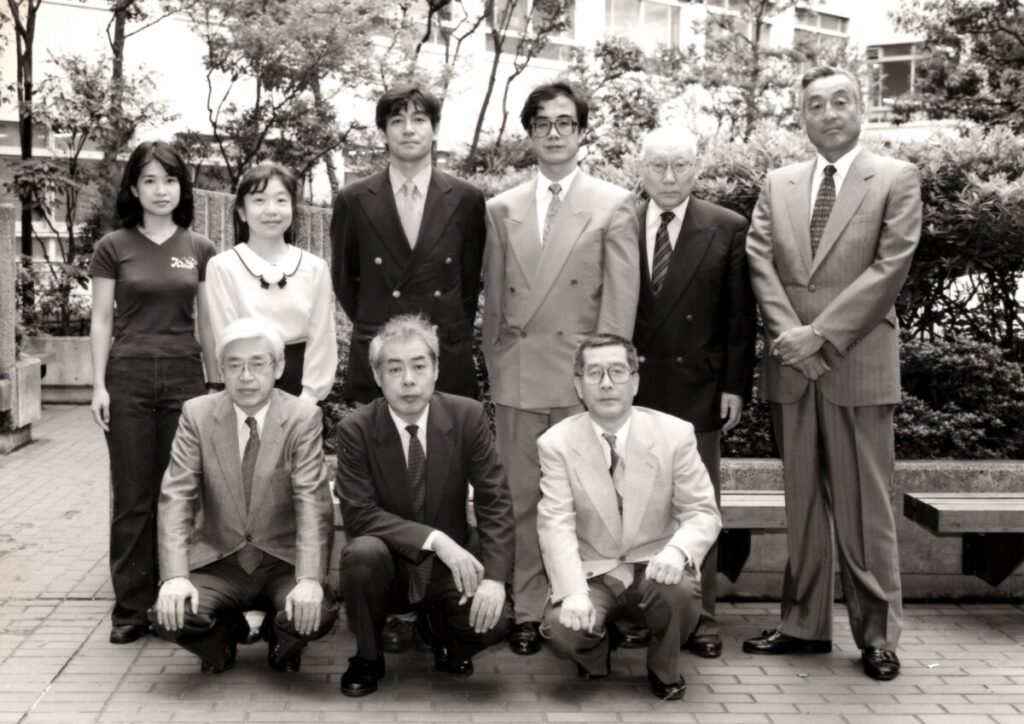Comments by donators
<Part I>The half century I spent at Sophia as student, and as faculty
Mr. Yuga Suzuki Professor Emeritus, Sophia University

<Part I>
Radio ignited my interest in media and motivated me to enroll in the Department of Journalism
I began my journey at Sophia University in 1971 and delivered my final lecture in 2023, following my time in graduate school and a career in teaching. Having been part of the University for more than five decades, I never thought I would be engaged for such a long time when I first stepped through its door.

My fascination with Sophia began with the radio. Back then, late-night radio shows gained significant popularity, particularly with the youth, and TBS Radio’s “Puck in Music” stood out as a favorite among them. As a teenager in high school, I grew to be an enthusiastic radio listener and frequently visited Nippon Cultural Broadcasting in Yotsuya to attend live recordings in the early evenings. After spending time at the radio station on several occasions, I developed a keen interest in radio and media studies. While exploring my educational options, I found the Department of Journalism at Sophia University’s Faculty of Humanism in Yotsuya, a familiar spot for me. In those days, there were hardly any programs available for media studies like there are now, so I viewed it as a valuable opportunity and applied to the University with a recommendation.
Learning about my interests was an exhilarating experience, and while it all began with radio, I soon discovered my growing passion for newspapers, television, music, stage scripts, and other forms of media. At that time, the Department of Journalism already had part-time faculty members who were journalists working for various newspapers and news organizations, bringing real-world experience to the classroom. I believe that listening to the genuine insights of these tutors fueled my passion for the media industry.
On the other hand, I grew somewhat weary of the student movement. It was 1969 when the Yasuda Auditorium at the University of Tokyo was taken over by students, which resulted in riot police storming the building. Even though the movement had almost concluded by 1971, my first year, classes were frequently disrupted by debates, leading to the cancellation of final exams and the submission of reports via mail. The current peacefulness of the campus might make it hard to believe, but student activism at Sophia then was so intense that it became the first private university to undergo a lockout, with Molotov cocktails being flying on the campus. However, even during our high school years, we sometimes held debates, influenced by the Yasuda Auditorium incident. After enrolling in Sophia, I realized that student debates were scheduled to end at 5:00 p.m. If they truly desired transformation, they should pursue it without being concerned about time constraints, but they seemed to cling to a schedule. I found this illogical, and it prompted me to contemplate my motivations for enrolling in university, asking myself, “What was my intention in pursuing higher education?”
What should I study in university? An academic journey shaped by a number of encounters
Study is about learning what is taught, while scholarship is about learning to question. A university is a place where students learn by asking themselves “what to learn.” In my case, it was Professor Chugo Koito who illuminated the question. He completed his education in the United States prior to World War II, experienced the Great Depression, and subsequently returned to Japan on the final ship operated under the U.S.-Japan exchange and repatriation program. He had been involved in intercepting American shortwave broadcasts directed at Japan and later became a faculty member of Sophia after holding the position of New York Bureau Chief for Kyodo News. During my sophomore year, I joined his seminar, which led me to delve into research areas similar to his, namely the history of journalism and global communication.
One of my unforgettable memories in my undergraduate days is a series of questions and answers I exchanged with a Father. In those days, we didn’t have the convenience of accessing numerous resources on tablets as we do now. So, when I mentioned to the Father, “My bag feels heavy every day because of the original books and dictionaries,” he responded, “Scholarship carries great weight.” I think his remarks indicated not solely a physical weight, but also the significance of a learning path and of a life as a researcher and an instructor.
Inspired by the teachings of Prof. Koito, the Father, and a number of other mentors, I made the decision in my last undergraduate year to expand my knowledge of media, leading me in enrolling in the Graduate School of Humanities at Sophia University. To fund my graduate studies, I started working part-time as a social studies instructor at the junior high school I had attended, and over time, my teaching responsibilities expanded, leading me to teach at three different schools. At that time, when the starting salary for a college graduate was 50,000-60,000 yen, I earned about 40,000 yen a month, which I used for tuition and living expenses. Just to mention, the title of my university dissertation was “Late Night Broadcasting and Young People.” I wrote the dissertation on this theme, recalling my original aspirations at the time of admission.
While I first became interested in media via radio, this interest later transformed into a focus on English-language newspapers during my time in graduate school. In my master’s course, I encountered English newspapers published in the late Edo to Meiji eras, which sparked my curiosity about the impact these publications had on Japan during the Meiji period through their readership. I was taught that English newspapers were difficult to research due to the poor preservation of original documents. So, I visited Nagasaki, Yokohama, and Kobe, which were foreign settlement areas back then, to conduct research and wrote my master’s dissertation on “English-Language Newspapers and Foreign Journalists.”
Following Professor Koito’s recommendation, I pursued my studies for three years at the University of Sydney in Australia, where I also investigated those who were associated with English newspapers published in Japan. This experience allowed me to learn from Prof. Henry Mayer, a renowned pioneer researcher there, as well as from the then-tutor, R. Tiffen, who is now a Prof. Emeritus at the university. Since Prof. Mayer is viewed as a legendary figure, Australian researchers express their surprise when I reveal that I had the chance to learn from him. Prof. Tiffen has also taught at Sophia University for a year.
As I look back, I understand that my social circle and areas of research have expanded through the diverse relationships I’ve developed since I became a part of the University. My study of English newspapers led to a request from Perikansha Publishing to reprint Meiji-era newspapers in chronological order. Consequently, I took on the role of supervisor and author of the Nihon Shoki Shi, a complete collection of early newspapers published in Japan, consisting of more than 60 volumes.

– Summer 1978 – Studying abroad in Sydney, Australia.
Recognized as a “father figure in Tokyo” over the course of teaching and mentoring students
After advancing to the doctoral stage, I made the decision to leave with a year remaining, having completed all the required credits, and I began my teaching career as a lecturer at Sophia University in 1984. At first, I arrived at the University at around 7:00 in the morning and returned home at 11:00 at night. I invested a considerable amount of time in both teaching and educational researches, believing that having a richer knowledge base would enable me to tap into the diverse talents my students had.
Previously, the Department of Journalism accommodated 60 students (increased to 120 students in AY2017), and was characterized by a limited number of students learning both theoretical and practical aspects, as well as offering talent to the mass media sector. A number of students aspired to pursue careers in media; however, becoming a journalist entails being part of those who cover unfortunate events like incidents, accidents, discrimination, and harassment. I have consistently reminded my students to keep in mind that they are “making a living by dealing with the misfortunes of others,” including political scandals, since the news is overwhelmingly more negative than positive.
As times evolve, the job market has broadened to encompass not only media, but also advertising, public relations, and communications for the private sector. Nowadays, our focus extends beyond training media specialists, to include the development of human resources with essential communication abilities and media literacy necessary for working adults.
Another characteristic of the Department of Journalism and the Journalism Major is a historically large number of international students. In particular, many international students hailed from East Asian countries such as Korea, China, and Taiwan. I offered extensive support in their dissertation work to help them obtain their degrees. To assist international students with their dissertations, it is essential to begin with training in the Japanese language, so as to equip them with the skills necessary for writing academic papers. Furthermore, for doctoral dissertations, it is crucial to develop their capabilities until they can show they are prepared to begin a research career. If they wish to write their dissertation in English for future endeavors, they must also develop a strong command of the language. The essence of education lies in “teaching and nurturing.” I frequently enjoyed lunch with my students to give my full attention to each of them and nurture their potentiality.
Occasionally, I would hear remarks suggesting that I was too permissive with my students. However, with a wife who was an elementary school teacher and whose role was to lead children into elementary education, I perhaps felt a sense of duty as her partner to prepare my students for their future in society. Through my interactions with each student, I gradually earned the nickname “a father figure in Tokyo” from those who came from different countries or regions in Japan. As I progressed to the role of associate professor and later professor over the years, I became known as “a grandfather figure in Tokyo.”

– Around 1996 – With staff from the Department of Journalism.
Creation of Job-Hunting Courses and Promotion of Working Adult Admissions
Alongside educational initiatives, I dedicated my efforts to the creation of job-hunting courses as well as to the promotion of working adult admissions. The creation of the job-hunting course was facilitated by the contributions of alumni, along with Mr. Akira Shoda, a law professor and cousin to Empress Emerita Michiko, and Mr. Sanji Yamaoka, a theology professor who later served as Vice President. Through our survey of alumni’s lives and attitudes, we found that their university education had a considerable effect on their social interactions, with both language and specialized education having a major impact, along with an unexpectedly large influence from their communication with faculty members. In addition to scholarly efforts, their interactions with familiar faculty members positively influence their social engagement. I feel satisfied that we were able to bring this to fruition, as sharing these insights with current students will change the way they spend their time in the University. Nowadays, every university offer courses and events focused on job hunting for their students, but we take pride in being among the first to introduce such initiatives.
Furthermore, we actively promoted the working adult admissions, aiming to attract a diverse group of individuals interested in pursuing higher education at universities or graduate programs. A significant number of people, whether in Japan and internationally, have the will to re-engage with learning following their various experiences in society. Working adult international students who attended Sophia University and went back to their native countries, including Korea and China, have made significant contributions across various sectors. Among them are those shaping the public discourse and individuals who have taken up professor positions at universities. Thanks to the connections formed through the initiative, when I took my seminar students to training camps in Seoul or Taipei, former students from the working adult education programs provided us with support in many aspects. This resulted in the creation of a cycle in which the benefits were given back to the students who were enrolled at the time. Having spent four decades teaching at Sophia University, I now feel that human connections have enhanced the educational experience for the next-generation of students.
<End of Part I/ Here is the second part of the article.>

